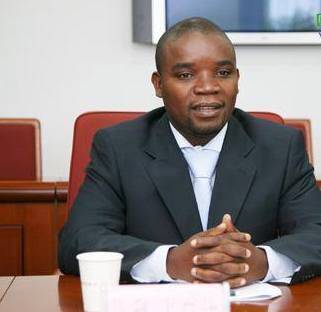
After his debut in 1997, Mwapindulanji, Billy Kaunda lighted his career in a way that was probably beyond his expectations.
Coming from humble beginnings of learning the art of singing from Church choir, it took his decision to approach Lucius Banda for promotion as he was about to start a solo career.

If ever there was a year that music from Balaka was at its peak it should be 1997. There were albums from the likes of Lucius Banda, Coss Chiwalo, Paul Chaphuka and Isaac Liwotcha, works that have risen up to be some of Balaka’s best offers.
It was also the same year Lucius Banda established his own band, Zembani, after moving out of Alleluyah Band which was formed by his elder brother, Paul, in 1979.
That was the brief background in which Billy Kaunda trekked up North from Blantyre to be in Balaka, a place where music stars were being made by Paul Banda at his Imbirani Yahweh studios. By any standards, Mwapindulanji was a work that defined Billy Kaunda for the rest of his career.
It in there was a Billy Kaunda who embraced Balaka reggae, but most importantly, who usually made music from the Bible.
That is why some later on thought of him as a gospel artist. But success of debuts has killed more careers than it has made them.
If there is a work that gives pressure most artists it is their sophomore. It is easy to lead the race, but maintaining the lead is another thing. And that was what Billy Kaunda was about to face in 1998 when he went back to the studios for his second effort.
He titled his second work, Alibe Mawu.
The album carried a somber mood with songs that dwelt on the crying of orphans, oppression and most notably, Kumidima, a song that was a tribute to several actors that had passed on around the time he was compiling the album.
Although it was a huge success, the song caught some controversy.
Produced by the late Chuma Soko at Imbirani Yahweh studios, the song did not only bolster Billy Kaunda’s career, but that of Chuma Soko too.
It was to be a tribute that featured several fallen names, until Billy Kaunda chose to use the word Kumidima to describe where souls of the dead were.
Billy Kaunda should be credited for this word. It was little known until his song popularized it and from then associate it with death. Literally, it means darkness and that is the reason some people had troubles with it. Darkness is also associated with hell and it sounded like he had condemned them for eternal damnation.
The song mentioned some of the then biggest names in theatre, Du Chizisa Jr., Christopher Chiwalo, Charles Severe and Jack Phiri. They all passed on in a space of two years and he put it well when he sung kuchoka sachoka chotero (that is not how we leave).
The controversy raged on, and Billy Kaunda being a man of few words, allowed it to pass without comment. As a new artist, it surely scared him a bit and made him feel that he had lost footing with his listeners. It was not as it is today, using controversy to sale an album.
The integrity of an artist was important and such career slips could have easily strangled it.
But the song was too good to be overshadowed by the controversy it has caused. Salvation for Billy Kaunda came from unlikely sources, two names that had influence in Malawi theatre industry with one of them being a nephew to the late Charles Severe; Izeki and Jakobo.
The comedy duo felt it was too much on the 26 year old musician and intervened to clear the situation once and for all.
They wrote a joint press communication that was published in Malawi News defending the word saying that it meant the graveyard and not hell as some were interpreting it.
Jakobo was the nephew to late Charles Severe, and being notable names in the theatre industry, it addressed the controversy and saved Billy Kaunda’s day.
It was unintended controversy for him, and the first one in his career. But the fact that it built him cannot be overlooked. The album was the last he recorded under the wings of Lucius Banda.
The two went into a feud over payments making Billy Kaunda depart from his music godfather for good. He had seen enough with Kumidima and had matured enough to handle it on his own.
About the writer: Wonderful Mkhutche is a professional speech writer, a political scientist and a manuscript editor and developer














